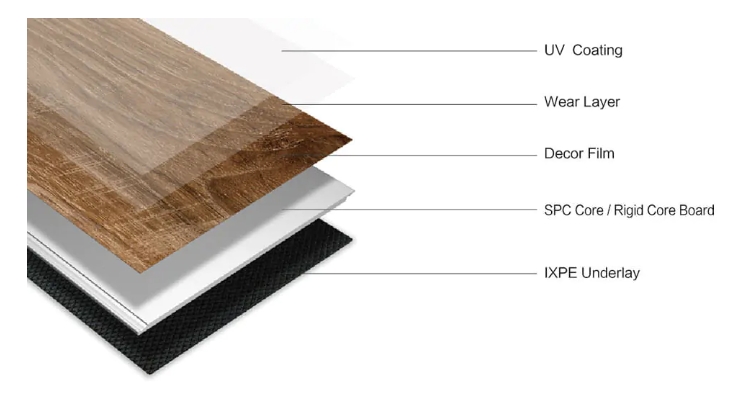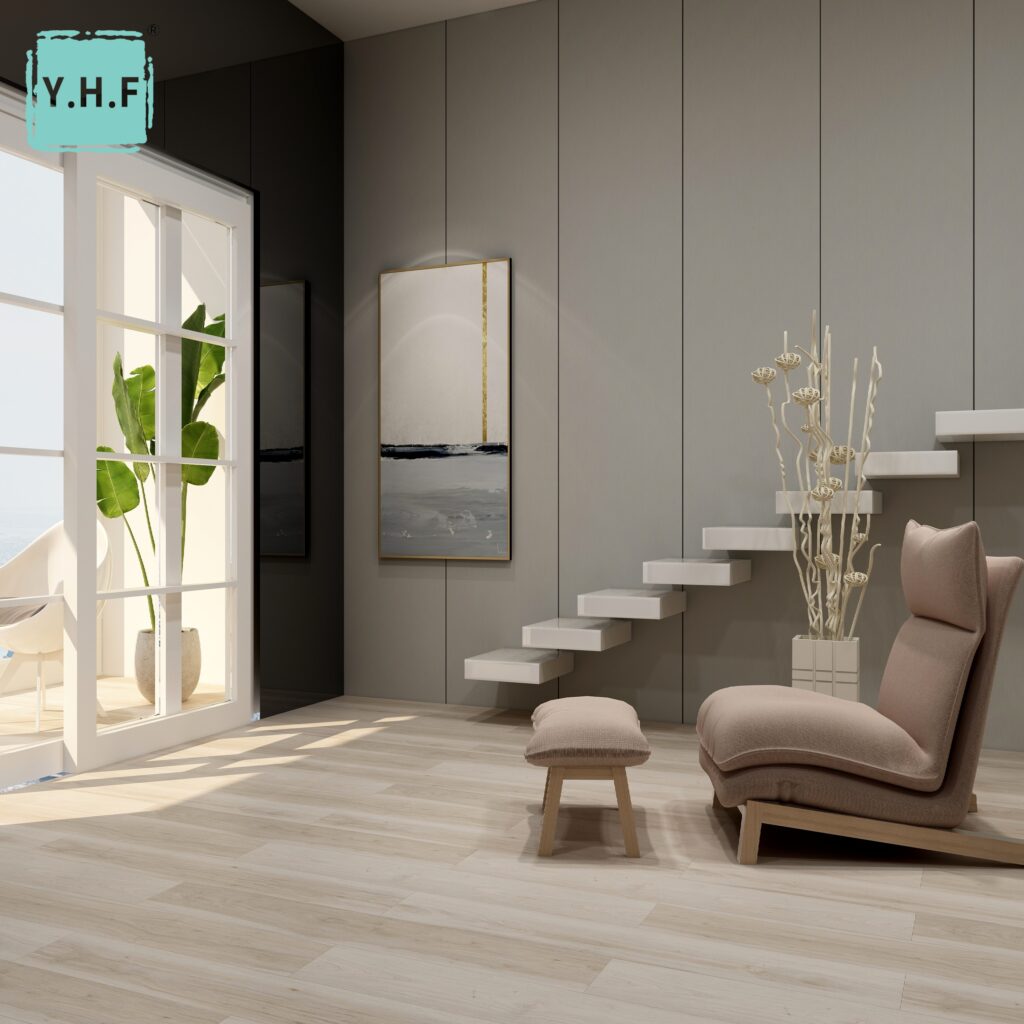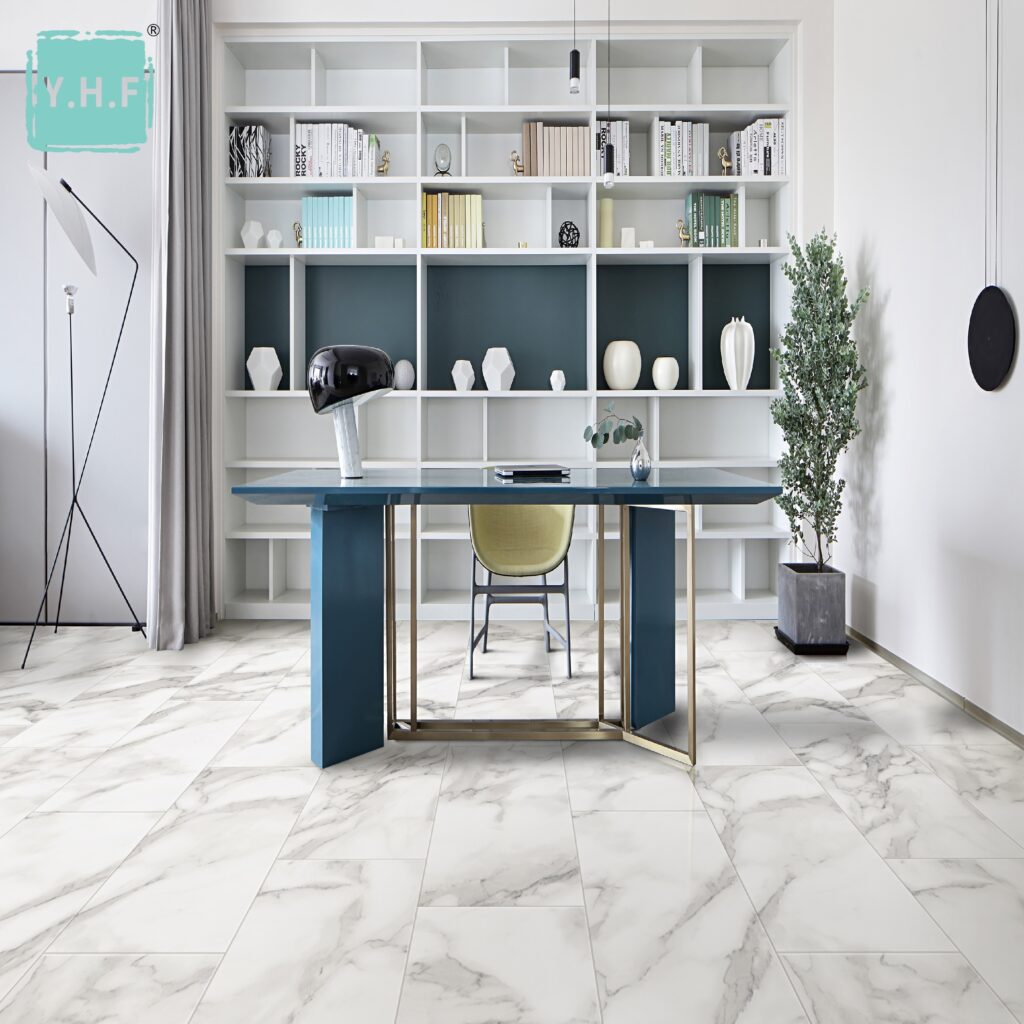When choosing PVC flooring, durability and warranty are often top concerns for homeowners, contractors, and designers alike. One of the key indicators of a flooring’s longevity and performance is its wearlayer thickness. Understanding how this aspect affects warranty coverage can help consumers make better-informed decisions.
What Is Wearlayer Thickness?

The wearlayer is the topmost layer of PVC (vinyl) flooring that protects the printed design layer beneath. It is typically made from a clear urethane coating and serves as a defense against scratches, dents, stains, and general wear and tear. Wearlayer common thicknesses range from 6 mil to 30 mil, depending on whether the flooring is intended for residential or commercial use.
How Wearlayer Thickness Affect Durability?
Thicker wearlayers provide greater protection and are more resistant to daily wear. For example:
6–12 mil: Suitable for light residential use.
12–20 mil: Ideal for heavy residential or light commercial use.
20–30+ mil: Recommended for high-traffic commercial areas.
Flooring with thicker wearlayers tends to last longer, especially in high-use environments, which directly influences the manufacturer’s ability to offer longer warranties.
Wearlayer and Warranty of Y.H.F.
| Warranty &Thickness of Wearlayer | Commercial Use | Residential use |
| 12mil (0.3mm) | 5 years | 8 years |
| 20mil (0.5mm) | 8 years | 15 years |
The warranty period of Y.H.F’s flooring depends on the thickness of the wear-resistant layer (taking commercial premises as an example).
The thickness of the wear-resistant layer is 0.3mm, and the warranty is up to 8 years.
The thickness of the wear-resistant layer is 0.5mm, and the warranty is up to 15 years.
When used with a 0.5mm wear-layer in qualifying commercial premises for up to 8 years, and in residential premises, it is up to 15 years. When used with a 0.3mm wear-layer in qualifying commercial premises for up to 5 years, and in residential premises, it is up to 8 years.
Beyond Thickness: Other Factors That Affect Warranty.
While wearlayer thickness is a major factor, warranties also depend on:
1. Installation quality: Poor installation can void warranties.
2. Maintenance: Failure to follow proper cleaning guidelines may reduce coverage.
3. Usage conditions: Excessive moisture or using the floor in unsuitable environments (e.g., outdoors) might not be covered.


Conclusion
The thickness of the wearlayer in PVC flooring plays a crucial role in both durability and warranty length. While thicker wearlayers typically cost more upfront, they offer better protection and longer peace of mind through extended warranties. When selecting flooring, it’s important to balance your budget with your usage needs and warranty expectations—thicker often means stronger, and stronger often means more secure coverage.

